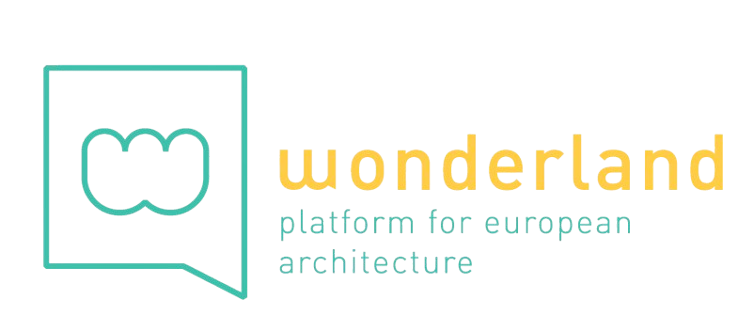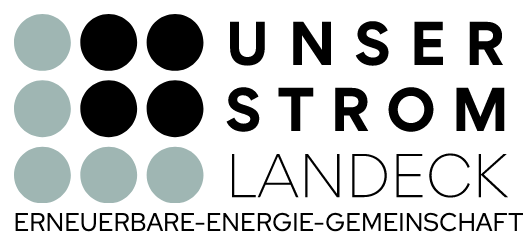
The context
Tyrol, as the northern central part of the alps in Austria, is defined by the mountain range’s deep valleys, countless water streams and world-famous touristic activities. According to the set goals, the province, initially desiring to be autonomous from fossil energy by 2050, now aims to reach this goal much earlier.
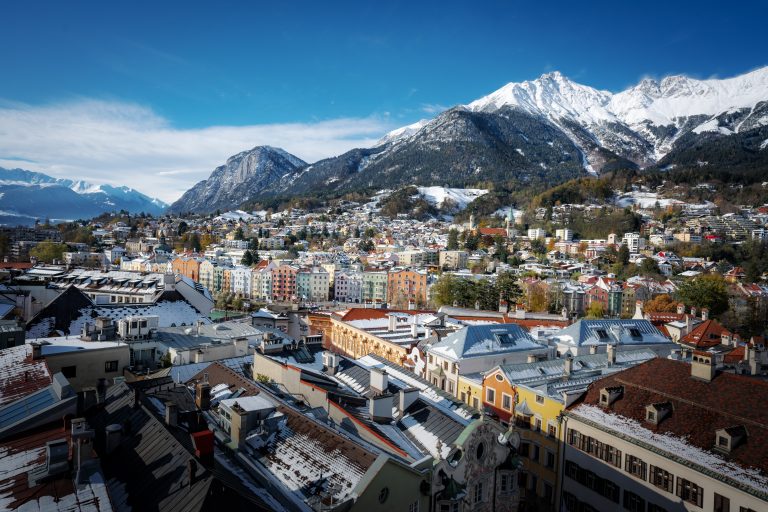
In 2021, Tyrol published their adapted scenarios, with interim goals for 2030 and 2040, according to which they plan on surpassing fossil energy consumption with renewable energy use by around 2040. These ambitions are supported via various nationwide actions and funding schemes, such as the Climate and Energy Model-Region. The aim is to activate the potential of regions and local communities and support their contribution towards the outlined energy goals.
Within the community, there are ambitious groups trying to proactively support this energy transition. One of these is the renewable energy community Unser Strom Landeck.
Unser Strom Landeck
Landeck has been a Climate Model Region (KEM) since 2009, a program initiated by the Austrian Climate and Energy Fund.
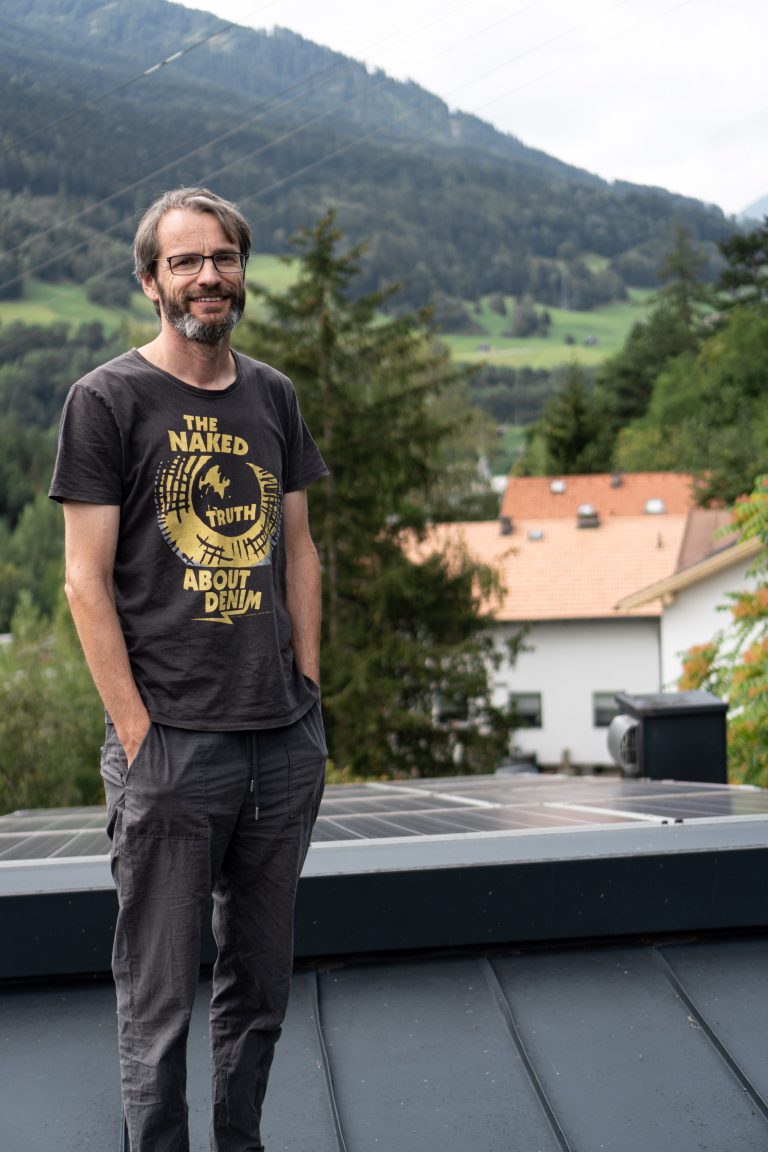
The objective of the fund is to support initiatives that bring Austria closer to its goal of being climate neutral by 2040. This includes activities within energy and mobility transitions, climate change mitigation, and raising awareness on related topics.
In the region, Unser Strom Landeck acts as a sandbox energy community, sharing best practices to others interested in establishing an energy community of their own in the region, while establishing networks to other energy communities.
Learning from doing
The new renewable energy-law in Austria has made it possible to found and operate energy communities, renewable energy communities, and citizen energy communities. As the Climate and Energy Model Region focuses on, among other topics, photovoltaic systems, battery storage, hydropower plants, and energy efficiency, one of the focus points is also on energy community development.
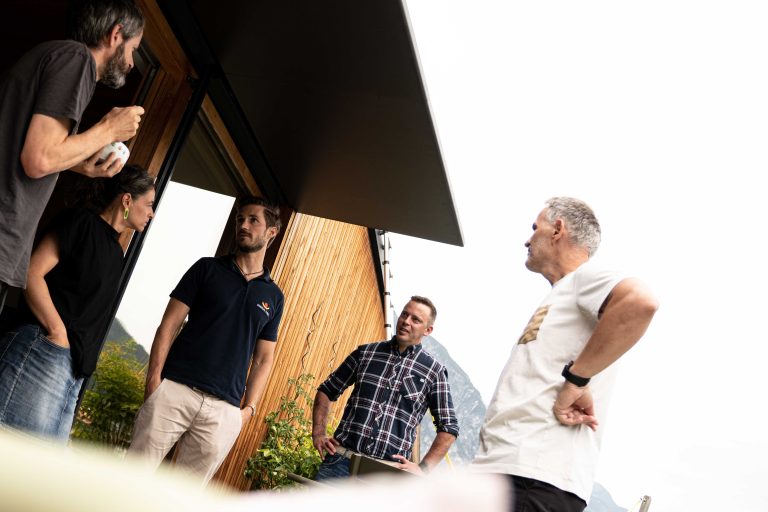
Unser Strom Landeck, the first active energy community in Tyrol, is further supported by the EU operated Leader programme, which supports rural area development, including providing support for establishing renewable energy production systems and climate protection related action. As part of the Leader project, Unser Strom Landeck was launched as an association in 2021 by Elisabeth Steinlechner and Jürgen Neubarth. The Leader project was initially aimed to support three to five communities in setting up an energy community by accompanying them for the first one to two years. However, the interested in energy communities from local initiatives, small and medium enterprises as well as communities was significantly higher than expected. Hence, more than 15 energy communities in the region of Landeck have been supported by the Leader project so far. In this context hands-on-experiences from the first energy community Unser Strom Landeck have proofed to be very valuable. Elisabeth and Jürgen state that they obtain knowhow through their own community on issues such as developing contracts or processes, and offer the templates created (such as contracts etc.) to other communities in the region, allowing them to bypass the discovery and learning phase.
The project began with the setup phase, during which the focus was on creating clear and targeted learning objectives, and establishing relevant processes, such as obtaining all the required contracts available and establishing a network with relevant stakeholders. For Jürgen, it was important to focus on quality over quantity or expediency. Ath the beginning within Unser Strom Landeck, most of the members in the energy community were people that have substantial knowledge in environmental and energy topics, which helped with the process.
Following the establishment of initial processes, it became possible to set up the community. After a period of consolidation and learning Unser Strom Landeck was able to increase the amount of generators, which was crucial for scaling up the community. Consequently, an important task here was to directly approach people the founding members knew would be interested in the topic.
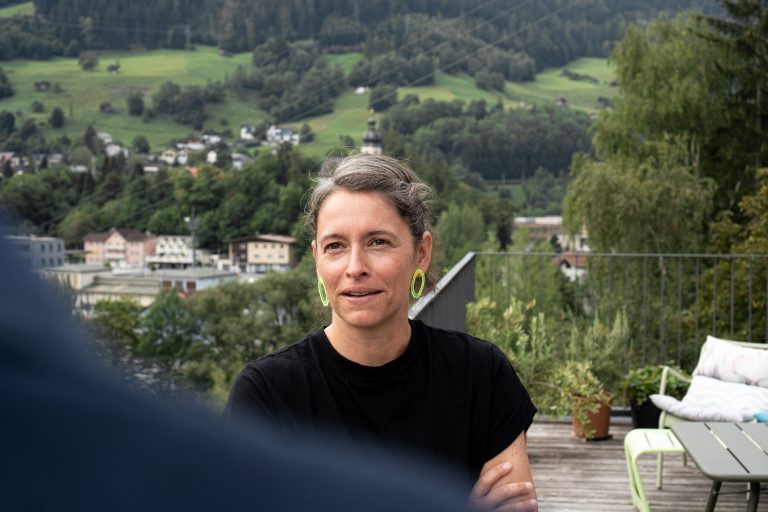
Merely approaching individuals with knowledge on energy communities does not suffice however, and enabling everyone to take part in decentralised energy production (or consumption) becomes an important part of the process. For this, Unser Strom Landeck has provided information to the local press to raise awareness and invite people to join the community. Their homepage outlines the process clearly and makes it easy to send a request to join the association and later to share the electricity.
Given that only Elizabeth and Jürgen were involved in the beginning, they’ve continued to oversee the decisions on developing the energy community. However, Jürgen acknowledges that this needs to be further developed in the upcoming years. With more members, it is their hope that more people will actively contribute to the association.
They believe the community should be governed via a democratic process within which members meet, discuss plans and then jointly decide on how to organise things. As Unser Strom Landeck grows, the ways in which they govern the work and assign tasks will change. Every energy community will be facing similar challenges on how to distribute the decision-making process or adopt participative concepts.
Engaging with the locals
As is often the case with energy communities, members participate during their spare time. While some might have knowledge on the topic, the community does not consist of professionals and members learn through practice. This impedes the pace of the process, given that the resources can be limited. Unser Strom Landeck views this characteristic as an advantage however – they learn from the process and then use the knowledge garnered to efficiently support emerging energy communities.
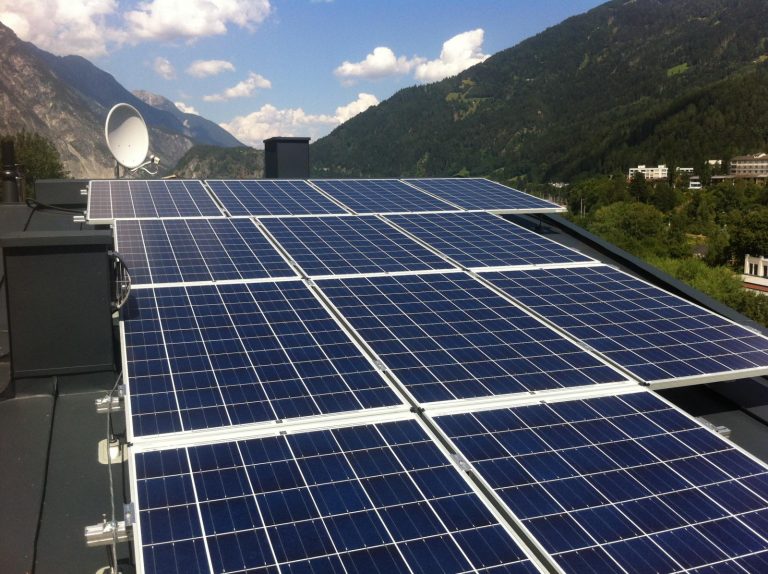
They acknowledge the fact that their community consist mostly of people with a strong interest in energy related topics in general and photovoltaics in particula, which might not always be the case in other communities. Energy communities are beginning to reflect the diversity found in society, given the interest in the topic, particularly against the background of the energy crisis. With a significant increase in gas and electricity prices, people are now more interested in alternative energy sources and price stability. Indeed, Unser Strom Landeck has seen through their experiences that the aspect of price stability may be a stronger advantage for advocating for energy communities, than the economic advantages of produced electricity itself. They emphasize that energy was quite affordable in the past and this reduced interest in renewables, but the crisis has caused people to think about their energy suppliers and sources. Energy produced in the region, at a stable price, is becoming increasingly popular.
How does Unser Strom Landeck engage with citizens?
Jürgen emphasises the power of direct contact. Talking about it, wherever, and whenever, they can. Some members of the association are very active, and find places to promote the idea of energy communities, and discuss the advantages with others. They also utilize the website – people can then find more detailed information to make their decision on joining. However, they also know it’s important to avoid growing too rapidly in order to ensure the development is manageable. Adding new members takes time, and Unser Strom Landeck wants to make sure that it is all done correctly. Slow and steady wins the race in this case. Hence, after more than two years of operation Unser Strom Landeck increased the number of members to 50 in July 2024 with a total PV capacity of almost 250 kWp. Since, the nursing home St. Josef in the community of Grins with a high electricity consumption for the kitchen and laundry has become a member of the energy community almost ¾ of the electricity fed into the grid by members can be consumed in the energy community.
financing and planning for the future
Unser Strom Landeck has received financing through the EU Leader initiative for a period of three years via a project initiated by regioL – Regionalmanagement Landeck. The project is carried out by e3 consult, a consulting company for energy business based in Innsbruck and Landeck.
The total budget was initially calculated to provide support to three to five energy communities from the initial phase of establishment through to them reaching the operational phase. wever, in the end it was possible to provide support to more than 15 initiatives in the region of Landeck to found an energy community. The fund covers costs of the consultants, the costs for lawyer services for preparing the contracts and privacy documents, and costs for tax consultants. So far no direct investments by the energy community Unser Strom Landeck and other energy communities in the region to devices are made because the risk would be too high for the energy community. As Jürgen describes it, transitioning from an energy community receiving funding via external sources covering all initial fixed costs to a model where operational costs are sustained entirely by its members, remains a challenge. However, Unser Strom Landeck is open to exploring new funding mechanisms in the future, such as crowdfunding. This is because the energy community would like to build its own PV plus battery storage power plant in combination with a model in which the electricity from the PV plant is sold to the energy community based on specific generation costs, which are then passed to the members and significanty increase the communities self-consumption.
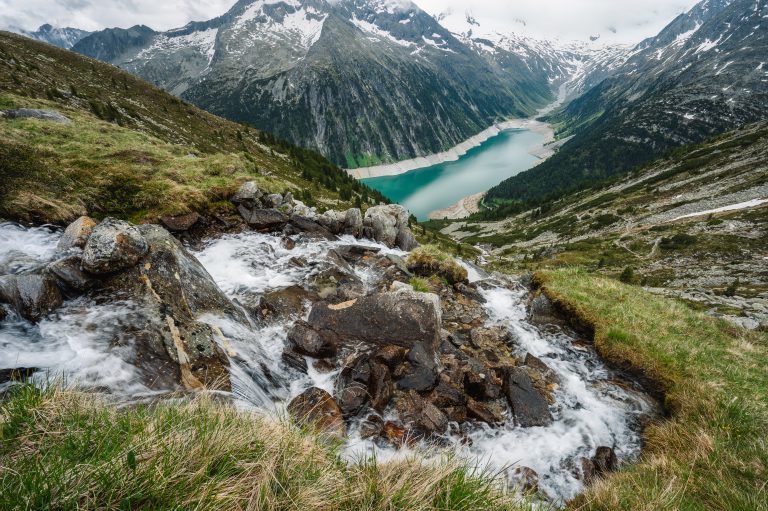
Each region in Austria is different, with varying degrees of support for energy communities. However, the support in Austria for developing energy communities is strong overall, particularly when compared to other regions in Europe. Entities such as the Energy Community Coordination office in Vienna provide energy communities with a vast array of information, such as the templates for the contracts, and publications on relevant topics such as tax issues for energy communities. Landeck faces a challenge in this regard, as local politicians aren’t that interested in the topic, according to the group. The municipality lacks a local utility, and it is this utility that generally supports energy related topics, as well as the overall municipality in the development of energy efficiency and renewable energies.
However, Elisabeth and Jürgen are establishing a web of support and knowledge exchange across the region. For example, as the manager of the Climate and Energy Model Region, Elisabeth has established connections to other municipalities, which have better preconditions compared to the municipality of Landeck. They also focus on gaining ground within the local political scene and – at least – have already motivated local decision-makers to start thinking about founding an additional energy community or joining Unser Strom Landeck. While the situation was not be so great at the beginning, things have already changed or will start to change soon.
What the future holds
On one hand, energy communities are established, because it is now on the national agenda, coming from the EU level. But this alone will not guarantee the success of such initiatives. When it comes to the future of energy communities, Jürgen sees the challenges, but is also hopeful. Indeed, no one can definitely say what the future will hold. Energy is a complex topic, and interest in it varies.
“ If you ask people, “What is a kilowatt hour? What is a kilowatt? How much do you pay for one kilowatt hour of electricity? How much do you consume?”, most people do not know.”
The group adds that without higher interest in energy related topics, energy efficiency and the overall energy transition are very difficult to achieve.
This is where the power of energy communities becomes important – they can operate as an information and exchange platform, bringing the topic a bit closer to citizens. The global energy trading market is not easy to understand, and the average citizen has little influence on, or control over it. However, if more energy supply is organised locally and regionally, the awareness of energy efficiency and renewable energies will grow. Perhaps people will gain more trust towards the energy market, while simultaneously worrying less about global energy prices, and having to think about where their energy comes from. The interest for this type of action is definitely increasing.
Visit Unser Strom Landeck

